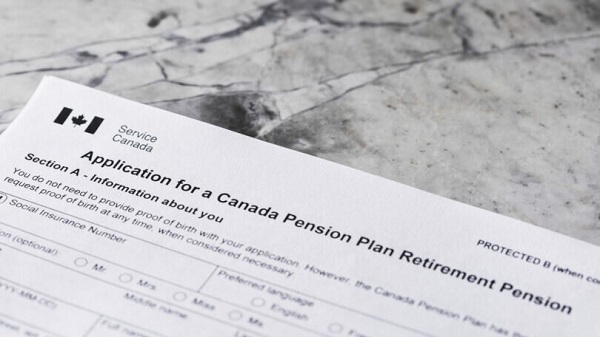Business
Tips From Tundra – Optimize Your Resume For ‘The New Normal’

The landscape of employment for job-seekers has changed dramatically since the beginning of the pandemic in Alberta. As of May 2020, the Alberta Government reports an unemployment rate of 15.5%. Combine that with experienced employees furloughed from various sectors, new graduates and those seeking a new career direction may have a steeper hill to climb than before. We continue to discover what is the new normal for Alberta post-pandemic, we revisit the topic of how to put your best foot forward when optimizing your resume for your job hunt.

Tundra Technical Solutions is a global recruitment agency headquartered in Toronto, Ontario. Since 2004, Tundra has grown quickly, today operating offices across North America, Europe and Asia. They work with top global partners actively seeking the best talent in multiple sectors such as finance, insurance, healthcare, technology, retail, energy, utilities, construction, mining, telecommunications, transportation and government to name a few.
Ever considered utilizing the skills a recruitment agency may have to offer? It may be the right time considering the volume of applicants in the hundreds on certain job postings, as shown in the image below. We spoke with Christina Esposito, Marketing and Communications Lead and Internal Recruiter for Tundra Technical Solutions on ways to optimize your resume for recruiters in the new normal.

(Source: LinkedIn Job Search)
Should your resume be written chronologically or functionally?
The key difference here is whether or not your work experience should be written as a timeline of your previous positions or should it be laid out in the form of what experience you feel is best suited for the position you are applying for. From a recruiters perspective, Christina mentions:
“We like to see a reverse chronological order of previous work experience. We recommend placing all of your technical skills right at the top of your resume, and then go into your most recent experience.”

Should you tailor your resume for the specific job you are applying for?
Say you are actively applying to open positions, tailoring your resume can be a time consuming task if your objective is to apply to the first 10-20 open positions you find. To that point, applying to everything you see can be detrimental to your efforts when utilizing a recruiter. Keep in mind, there is a human processing your candidate profile, and their efforts are to find the best talent for their employers. Christina offers a recommendation that can mitigate time for both the job seeker and recruiter:
“ we absolutely want to see someone tailoring their resume that matches the job description. A good tip for someone who might not want to go through a whole overhaul, is to first make sure that the job you’re applying to is relevant to your experience, recruiters can see if you’re applying to the first jobs that pop up for example. It becomes clear they haven’t really looked into the position they’re applying for. So, a lot of care and detail should go into those applications if you want to have the greatest success. Ultimately you want to make sure that the job description lines up with your skills…”

What is the best resume format that can be read autonomously through recruitment software?
As mentioned above, some positions can receive hundreds of applications. If you haven’t been made aware by now, recruiters utilise software called an Applicant Tracking System (ATS) or what is referred to as resume parsing, which allows the hundreds of resumes to be read and processed, thus creating a candidate profile highlighting the most relevant information to send to an employer. Say you spent endless hours on the most aesthetically pleasing resume to give that ‘wow’ factor, that may have been a solid practice in the past, but ATS systems have difficulty processing these resume formats, thus your candidate profiles could be lacking important information.
“I would recommend against a PDF format. The reason being is that Microsoft Word documents are the most legible and easiest to parse with. The way the ATS works is, someone sends in the application, the ATS picks those keywords from their resume and matches them to the actual job description. Inserting images or a lot of text can make it difficult for recruiters to look up your profile in the future.”
What should NOT be included on your resume?
Some of these you may already know, but let’s be clear, having a resume with only relevant information is your best chance of success. Working as a retail store manager I had received countless resumes from individuals seeking employment. During that time, I had encountered some of the most outrageous and creative resumes from all walks of life. By no means am I a recruitment specialist, but sticking to the basics was a winner for my new hires during that time. Christina offers the perspective of a recruiter for what not to put on your resume:
“Jumping right into things like objectives or hobbies is fine, but we would recommend against it because the longer you make your resume, you can decrease the chances of someone reading the full document. Best practice is to always keep your resume one to two pages with only relevant information. For industry veterans that have lengthy work history, you should only list the most recent and relevant experience.”
Should you include links to your social media?
Social media plays a significant role in the recruitment process for both agencies and hiring managers. LinkedIn has become a major part of what we call this ‘new normal’, with more than 20 million companies listed on the site and 14 million open jobs, it’s no surprise that over 75% of people who recently changed jobs used LinkedIn to inform their career decision. When it comes to social media, Christina offers her recommendations:
“90% of the time, recruiters are looking at your LinkedIn or Twitter. We want to make sure we get a holistic view of the applicant. 40% of our hires last year were candidates we sourced directly from LinkedIn. We have situations where we have candidates that look great on paper, but after we do some investigating. He/she doesn’t actually prove to be the person he/she was saying on paper. It’s a point of validation and puts a face to a name. My recommendation would be to keep your social media profiles clean, descriptive and showcase your accomplishments, especially if you have a public profile.”
This information should offer you some insight into how the employment landscape is changing and what best practices to implement for your job hunt. Who wouldn’t want to save time and effort on what can be an arduous task?

If you would like to learn more about Tundra Technical Solutions, speak to one of their experienced recruiters or to view their available positions in Alberta, check out their website here or message them on their Facebook below.
For more stories, visit Todayville Calgary
Banks
Canada Pension Plan becomes latest institution to drop carbon ‘net zero’ target

From LifeSiteNews
Changes to the law require companies to more rigorously prove their environmental claims.
The investment group in charge of Canada’s governmental pension plan has ditched its “net zero” mandate, joining a growing list of major institutions doing the same.
According to the Canada Pension Plan (CPP) Investments’ latest annual report, the entity is no longer committed to carbon “net-zero” by 2050. The CPP’s ditching of the target comes after a number of major institutions, including the Royal Bank of Canada (RBC), Toronto-Dominion Bank (TD), Bank of Montreal (BMO), National Bank of Canada, and the Canadian Imperial Bank of Commerce (CIBC), all made similar moves in recent months.
While ditching the net-zero effort, chief executive of CPP Investments John Graham maintained that it is still “really important to incorporate climate and incorporate sustainability” in its long-term investment portfolio.
The dropping of the “climate” target comes as recent changes to Canada’s Competition Act now mandate that companies prove any environmental claims they make, with Graham insinuating these changes were a factor in the decision.
“Recent legal developments in Canada have introduced, kind of, new considerations around how net-zero commitments are interpreted, so that’s caused us to change a little bit how we talk about it, but nothing’s changed on what we’re actually doing.”
Over the past decade, left-wing activists have used “net zero” and “environmental, social & governance” (ESG) standards to encourage major Canadian and U.S. corporations to take particular stands on political and cultural issues, notably in promotion of homosexuality, transgenderism, race relations, the environment, and abortion.
Outside of Canada, many major corporations have announced they are walking back DEI and other related policies. Some of the most notable include Lowe’s, Jack Daniel’s, and Harley Davidson. Other companies such as Disney, Target, and Bud Light have faced negative sales due to consumers fighting back and refusing to patronize the businesses.
Since taking power in 2015, the Liberal government, first under Justin Trudeau and now under Mark Carney, has continued to push a radical environmental agenda in line with those promoted by the World Economic Forum’s “Great Reset” and the United Nations’ “Sustainable Development Goals.” Part of this push includes the promotion of so called net-zero energy by as early as 2035.
Business
The Liberals Finally Show Up to Work in 2025

From the National Citizens Coalition
Canadians Demand Action, Not More Empty Promises
The National Citizens Coalition (NCC) today calls out the Liberal government for their belated return to the House of Commons in 2025, after months of dodging accountability while Canadians grapple with skyrocketing costs, unaffordable housing, crime and chaos, and the fallout of a decade of failed Liberal policies.
While the Liberals dust off their seats, millions of Canadians have been struggling to pay for groceries, keep a roof over their heads, or envision a future where hard work still pays off. The NCC demands the government stop hiding behind empty rhetoric and deliver meaningful, common-sense actions to address the crises they’ve exacerbated.
“After years of empty gestures, empty rhetoric, and empty promises, showing up to Parliament in 2025 isn’t an achievement – it’s the bare minimum. Canadians are drowning in high taxes, inflation, and a housing crisis, and they deserve real solutions, not more speeches,” says NCC Director Alexander Brown.
The NCC calls on the Liberal government to immediately prioritize:
Immediate tax relief to put money back in the pockets of hardworking Canadians, including axing the HIDDEN CARBON TAX on our Great Canadian businesses.
Concrete steps to slash immigration back to responsible, sustainable norms; including a crackdown on fraudulent ‘diploma mills,’ and the abolishment of the ‘Temporary Foreign Worker’ program, to protect Canadian jobs, and the jobs of our youth.
Meaningful, immediate efforts to increase housing supply, by slashing red tape and bureaucratic roadblocks that drive up development costs.
An end to wasteful spending on pet projects and corporate handouts that do nothing for struggling families.
Steps toward meaningful criminal justice reform; including an end to Liberal catch-and-release bail for repeat violent offenders.
A plan to restore economic opportunity, so young Canadians can afford homes and build a future without fleeing the country.
And it’s time to Kill Bill C-69 — and Build Pipelines.
Working Canadians have heard enough platitudes – it’s time for results. The government must act decisively to fix the mess they’ve created or step aside for those who will. With just a few short weeks before the Liberals abscond for another vacation, IMMEDIATE ACTION is required to match the urgency of the moment, and to atone for the insult of the Liberals’ cynical, dishonest, “elbows up” campaign that left millions of young, working-age Canadians without hope for the future.
About the National Citizens Coalition:
Founded in 1967, the National Citizens Coalition is a non-profit organization dedicated to advocating for lower taxes, less government waste, and greater individual freedom. We stand for common-sense policies that once again put Canadians first.
-

 Addictions15 hours ago
Addictions15 hours agoMan jailed for trafficking diverted safer supply drugs, sparking fresh debate over B.C. drug policies
-

 Alberta17 hours ago
Alberta17 hours agoHow Trump and Alberta might just save Canada
-

 Alberta15 hours ago
Alberta15 hours agoJann Arden’s Rant Will Only Fuel Alberta’s Separation Fire
-

 Bruce Dowbiggin12 hours ago
Bruce Dowbiggin12 hours agoCaitlin Clark Has Been The Real Deal. So Her WNBA Rivals Hate Her
-

 Business16 hours ago
Business16 hours agoThe Liberals Finally Show Up to Work in 2025
-

 Banks13 hours ago
Banks13 hours agoCanada Pension Plan becomes latest institution to drop carbon ‘net zero’ target
-

 Daily Caller14 hours ago
Daily Caller14 hours agoThere’s A Catch To California’s Rosy Population Stats
-

 espionage2 days ago
espionage2 days agoTrudeau Government Unlawfully Halted CSIS Foreign Operation, Endangering Officers and Damaging Canada’s Standing With Allies, Review Finds


